Welcome to the Survivor Support Program with the American Indian Cancer Foundation (AICAF). We understand that the journey doesn’t end with cancer treatment – it’s a lifelong process of healing, growth, and resilience. Whether you’re a cancer survivor, a family member, or a caregiver, our goal is to provide you with the support, resources, and community you need to thrive beyond cancer.
Discover the power of personal stories in finding connection, inspiration, and hope on your survivorship journey. Read stories from cancer survivors who have faced similar challenges and triumphed with courage and resilience. From diagnosis to treatment to life after cancer, these stories offer insights, perspectives, and encouragement for those navigating the ups and downs of survivorship.
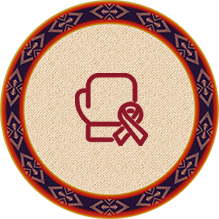
Surviving cancer is not just about physical recovery – it’s also about navigating the emotional, social, and psychological challenges that come with a cancer diagnosis. From fear of recurrence to coping with treatment side effects to adjusting to a ‘new normal,’ our survivorship challenges section provides practical tips, guidance, and support for addressing common concerns and finding resilience in the face of adversity.
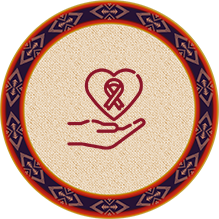
Your cancer journey doesn’t end with treatment – it’s important to prioritize your long-term health and well-being as a survivor. Our long-term care section offers information and resources to help you navigate survivorship care plans, follow-up appointments, and ongoing support services. From managing late effects of treatment to maintaining a healthy lifestyle to accessing survivorship programs, we’re here to support you every step of the way.
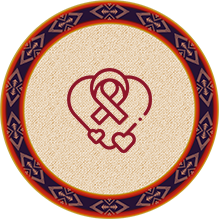
Find strength, connection, and solidarity in our supportive community of cancer survivors, caregivers, and supporters. Whether you’re looking for online forums to connect with others, support groups to share your experiences, or survivorship events to engage with the community, we offer a range of opportunities for you to connect, learn, and grow together. Join us in our mission to support and empower cancer survivors on their journey to healing and wellness.
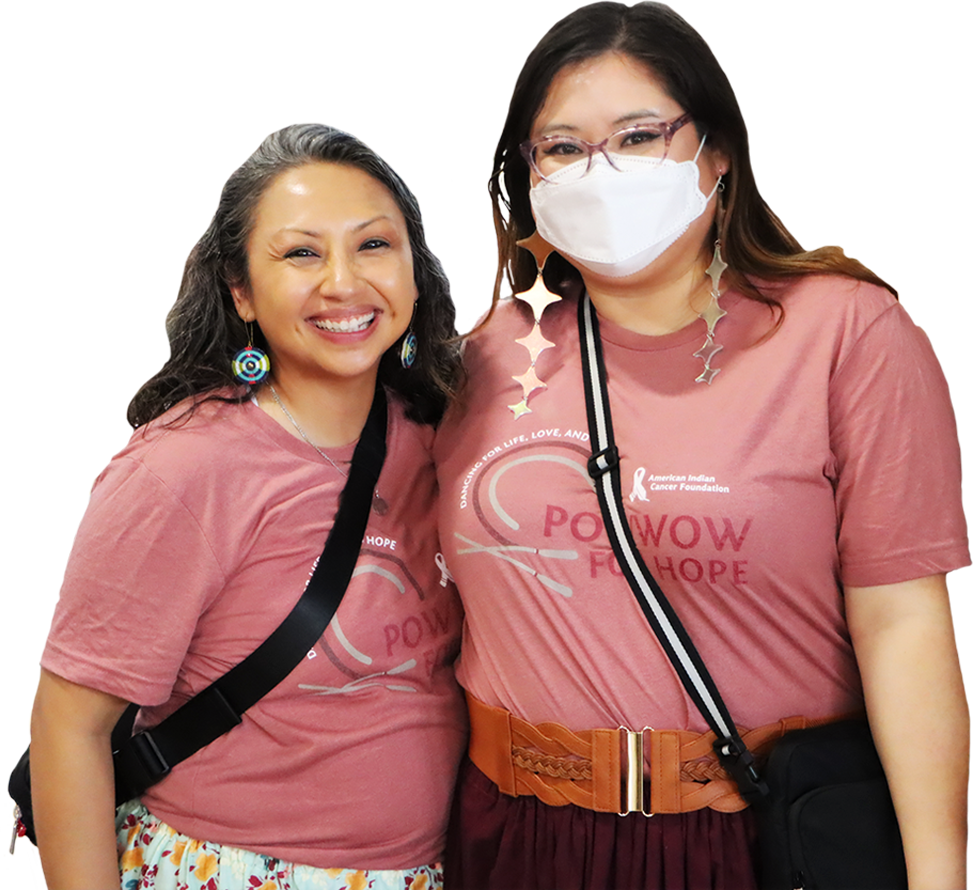
As we conclude our exploration of cancer awareness, let’s remember that knowledge is power. By spreading awareness, advocating for early detection, and supporting those affected by cancer, we can collectively drive positive change.
Join us in our commitment to empower individuals, promote healthy lifestyles, and ultimately, reduce the burden of cancer within Native American communities. Together, let’s inspire hope and build a future where cancer is no longer a formidable foe.
Copyright© 2025 American Indian Cancer Foundation® All rights reserved
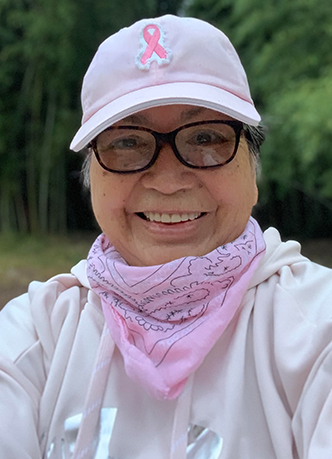
Breast Cancer
The first thing Elnora Thompson thought when she was diagnosed with breast cancer was, “Let’s get in there and get it out.” Elnora is a member of the of the Eastern Band of Cherokee Indians and resides in Cherokee, North Carolina. Health screenings, including mammograms and paps, were always stressed by Elnora’s mother. There was a history of breast cancer in her family, two of her mother’s sisters had been diagnosed.
Elnora knew her breast cancer risk and made healthy changes in her life: she quit smoking in 2000, started running, and always got an annual mammogram.
In 2011, at the age of 64, Elnora had a suspicious mammogram that required follow-up with a biopsy. The results were negative but required another mammogram in 6 months; this time, the next mammogram and biopsy came back cancerous. She was diagnosed with Invasive Duct Carcinoma Stage 1. “I didn’t have time for breast cancer”, Elnora declared. Although she was optimistic about her diagnosis, she still didn’t tell anyone. The IHS Women’s Wellness Program reached out to Elnora and encouraged her to tell her son. In doing so, he became her biggest support system. The breast cancer diagnosis led to a PET scan, which found 2 other primary cancer sites in her thyroid and lungs, that showed no symptoms. Elnora endured three different cancer surgeries in one year.
Elnora’s running club, Cherokee Runners, offered support and walked with Elnora in her first Relay for Life. The Cherokee Cancer Support Group was also a strong support system that reached out to Elnora and offered financial support during treatment and emotional support that contributed to her healing. Today, Elnora is cancer-free and volunteers with the Cherokee Cancer Support Group. The advice she shares with other American Indian and Alaskan Native Women is, “Get your screenings, my cancer was found early because I did screenings on time. I am also thankful for breast cancer because it helped find other cancers in my body.”
Thank you, Elnora Thompson, for sharing your breast cancer survivor story to encourage others to get screened.
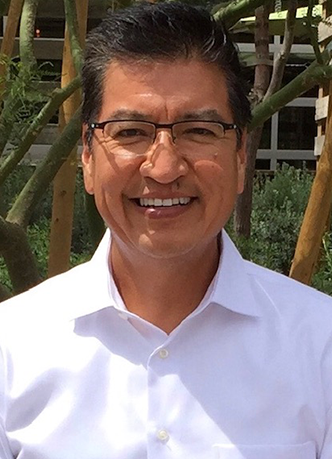
Colorectal Cancer
Colorectal cancer survivor Johnny Nelson of the Navajo Nation encourages people to be proactive about colon cancer screening and cognizant of their health, emphasizing that “preventive measures are the way to go.” When he lost a younger sister and brother to both colon and stomach cancers, Johnny made it a priority to get routine colonoscopies every few years.
His first colonoscopy was done at age 38. Despite national screening guidelines that advised people to begin colon cancer testing at age 50 (new guidelines recommend age 45), Johnny knew the disease could be hereditary and talked to his doctor about getting screened anyway. Individuals with a first-degree relative such as a mother, father, sister, or brother who have been diagnosed with colorectal cancer should begin screening at 40 years of age or 10 years younger than the earliest diagnosis of their relative. During the procedure doctors found a polyp attached to his right side, which resulted in removing six inches of Johnny’s colon at a later appointment, due to the size and shape of the polyp. After this Johnny became more mindful of his health, dedicating more time to fitness, nutritious eating and living a healthier lifestyle, all behaviors that can help reduce one’s cancer risk.
By December 2011, the time was approaching for Johnny to have another screening, just as he did every two to three years. Going into it, he felt he was at the “healthiest, fittest time of his life.” He was shocked when he heard doctors had discovered a large mass on his right side, which turned out to be stage 3 colon cancer. Initially he didn’t believe it because there were no physical indicators, but colon cancer often develops without any signs or symptoms. His friends and family were equally as shocked, but continued to be supportive through the healing process, especially since Johnny had already lost two siblings to colorectal cancer.
After removal of the tumor and six months of chemotherapy, today Johnny lives cancer free. Because he also has Lynch Syndrome – a hereditary condition that puts him at higher risk for recurrence – he stays on top of scheduling appointments with an oncologist, now visiting the doctor annually for a routine colonoscopy and to check his blood work. Johnny continues to be an avid supporter of screening and living a healthy lifestyle, as taking these precautions can help lower the risk of colon cancer in Native people. It’s important for American Indians and Alaska Natives to talk with their doctors about colon cancer screening; guidelines recommend both men and women ages 45-75 should be screened.
“It’s so simple and definitely inexpensive compared to the alternative,” Johnny stressed, “it’ll save you a lot of heartache.”
Thank you Johnny Nelson for sharing your story.
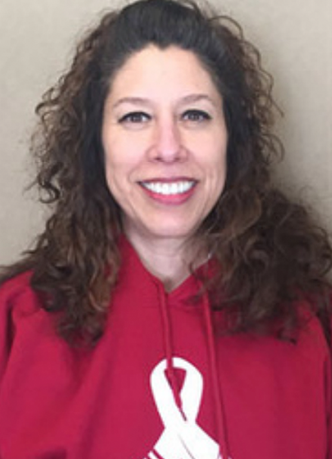
Cervical Cancer
Joni Buffalohead (Bdewakanton Dakota of the Sisseton-Wahpeton Oyate) has been getting regular Pap tests since she was a teenager. Following her second pregnancy at 30 years old, she received an abnormal Pap result. She returned to the doctor for follow-up care after giving birth to twin boys where she received the devastating news that she would need to have a full hysterectomy.
Joni shared with us a lot of the thoughts and feelings she had 20 years ago when she had her surgery.
Choosing to have her uterus removed was a difficult decision, especially since Joni and her husband had not yet decided if they were finished having children. Although the procedure would prevent future pregnancies, Joni elected to have the hysterectomy since she had already birthed a daughter and twin boys. Being unable to have children brought up a lot of difficult emotions for her. In the years since the procedure, Joni has found out that she may have had other options at the time.
Joni encourages other women to develop a strong relationship with their provider and have an active voice in their cervical cancer treatments. One regret that she has is that she did not educate herself more about cervical cancer treatments. Now that she has three adult children, she wishes that she would have had the opportunity to have more kids.
Joni’s diagnosis occurred during a time where not much was known about the links between HPV and cervical cancer. At first, Joni questioned who had first contracted HPV and spread it to whom. Questions of infidelity crept into her mind until she learned that HPV is extremely common in men and women and that HPV incidence might have occurred years prior to her marriage. In fact, 80-90% of people come into contact with HPV at some point in their life. Instead of unfairly blaming her husband, she made steps to protect their future generations from HPV-related cancers. She had honest conversations with her children about the importance of caring for your body: “I’ve been open with my children since early on. I taught my daughter to go to the OB-GYN regularly and my sons and daughter made the choice to get the HPV vaccine themselves.”
At the start of her cervical cancer journey, Joni made a promise to herself: “if I survive this, I will lead a more courageous life.” Today, she sings lead in a Native blues band Bluedog. Bluedog’s music gives voice to the struggles of Native people and celebrates the resilience of our people. With the knowledge that Native women experience higher rates of cervical cancer than white women, Joni now uses her voice to advocate for cervical cancer education and regular screening. She urges other women to get screened regularly and to use your voice for those who have gone through a cervical cancer journey: “if you go through it, please be an advocate. With your support, another woman might not have to.”
Thank you, Joni Buffalohead for sharing your story.

Cervical Cancer
Lugene Flores (Oglala Lakota) is a fierce advocate for Pap tests after ignoring results had a huge impact on her life. After the birth of her son at 24 years old, she received an abnormal Pap test result at a routine care appointment. Instead of following up with her doctor, she switched from clinic to clinic for ten years, scared of what the abnormal result might mean. She didn’t face it until frequent heavy, painful periods started in her mid-30s.
With steady encouragement and support from her husband, Lugene made the decision to address the decade long history of abnormal Pap results. She went to the doctor for a biopsy and found stage 2 cervical cancer in her uterus. Lugene initially went in for surgery to remove her cervix and uterus, but they found that cancer had rapidly spread. They needed to remove her ovaries and fallopian tubes as well. Today, Lugene is healthy and works as a patient advocate, educating young Native women on the importance of Pap tests.
“I was just too scared,” Lugene recalls, “I never thought there was a possibility that I could have cancer. I thought maybe it could have been an STD and I was too embarrassed to find out if that’s why it was abnormal.”
Lugene is sharing her story with the American Indian Cancer Foundation to reach other women out there who have had abnormal Pap results and are afraid. She says that for women who are scared, it’s important to talk about the possibilities with their healthcare provider. Otherwise, circumstances can get worse. She cautions: “Just because you ignore an abnormal test result, it doesn’t mean it’s not there. I ignored it for 11 years and it was still there – getting worse. It’s best to catch it early. The earlier you catch any disease, the better you are to fight it.”
Lugene feels she wouldn’t have been afraid to follow up on her abnormal result if she had had the right education beforehand. She advocates for stronger cervical cancer screening education for women. “It’s important for these young ladies to know how essential Pap tests are. It can save their lives. If they get an abnormal result, they need to have the education in place, in advance.”
For women to be more knowledgeable about their Pap test experience, she advises, “They need to connect with their healthcare provider and ask what’s next, what does that mean, and what is that test? You will find out that the test result is really nothing scary by asking about it. Ask your doctor, ‘How long does it take me to get the results of this test? What does abnormal mean? What are some reasonings that paps come back abnormal?’” Lugene encourages women to be their own advocate if the doctor is not being proactive or supportive enough.
Lugene has seen how the cancer burden has affected American Indians and urges men and women of all ages to prioritize screening. “In our Native communities, cancer runs pretty high. I watched a good friend’s mother die from cancer. I watched her waste away and I don’t want to see people die like that. I hope our people start listening and stop being scared of the unknown. We have to remember that we have to be here for our younger generations.”
Thank you, Lugene Flores for sharing your story.